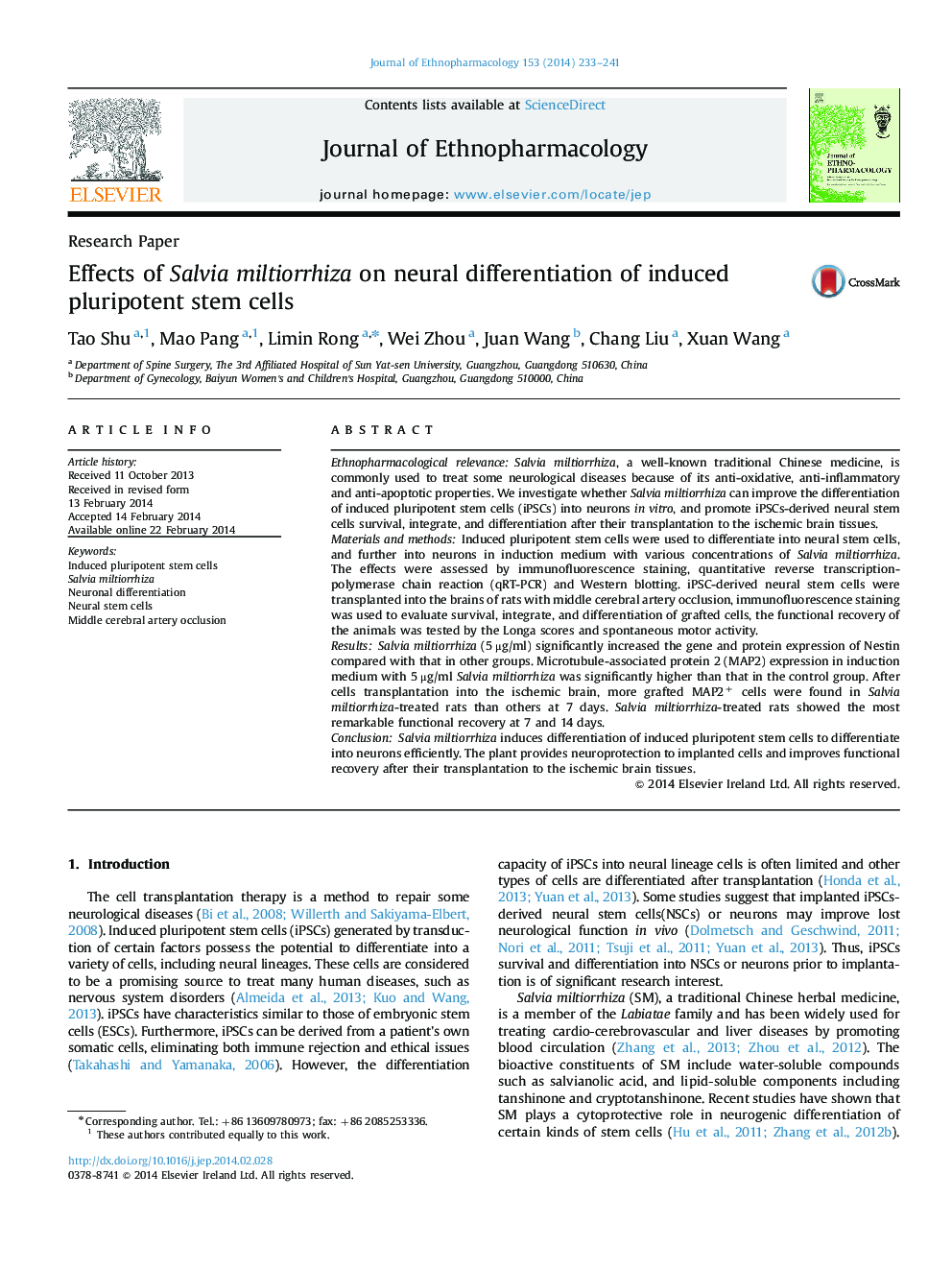| Article ID | Journal | Published Year | Pages | File Type |
|---|---|---|---|---|
| 2545386 | Journal of Ethnopharmacology | 2014 | 9 Pages |
Ethnopharmacological relevanceSalvia miltiorrhiza, a well-known traditional Chinese medicine, is commonly used to treat some neurological diseases because of its anti-oxidative, anti-inflammatory and anti-apoptotic properties. We investigate whether Salvia miltiorrhiza can improve the differentiation of induced pluripotent stem cells (iPSCs) into neurons in vitro, and promote iPSCs-derived neural stem cells survival, integrate, and differentiation after their transplantation to the ischemic brain tissues.Materials and methodsInduced pluripotent stem cells were used to differentiate into neural stem cells, and further into neurons in induction medium with various concentrations of Salvia miltiorrhiza. The effects were assessed by immunofluorescence staining, quantitative reverse transcription-polymerase chain reaction (qRT-PCR) and Western blotting. iPSC-derived neural stem cells were transplanted into the brains of rats with middle cerebral artery occlusion, immunofluorescence staining was used to evaluate survival, integrate, and differentiation of grafted cells, the functional recovery of the animals was tested by the Longa scores and spontaneous motor activity.ResultsSalvia miltiorrhiza (5 μg/ml) significantly increased the gene and protein expression of Nestin compared with that in other groups. Microtubule-associated protein 2 (MAP2) expression in induction medium with 5 μg/ml Salvia miltiorrhiza was significantly higher than that in the control group. After cells transplantation into the ischemic brain, more grafted MAP2+ cells were found in Salvia miltiorrhiza-treated rats than others at 7 days. Salvia miltiorrhiza-treated rats showed the most remarkable functional recovery at 7 and 14 days.ConclusionSalvia miltiorrhiza induces differentiation of induced pluripotent stem cells to differentiate into neurons efficiently. The plant provides neuroprotection to implanted cells and improves functional recovery after their transplantation to the ischemic brain tissues.
Graphical abstractFigure optionsDownload full-size imageDownload high-quality image (97 K)Download as PowerPoint slide
